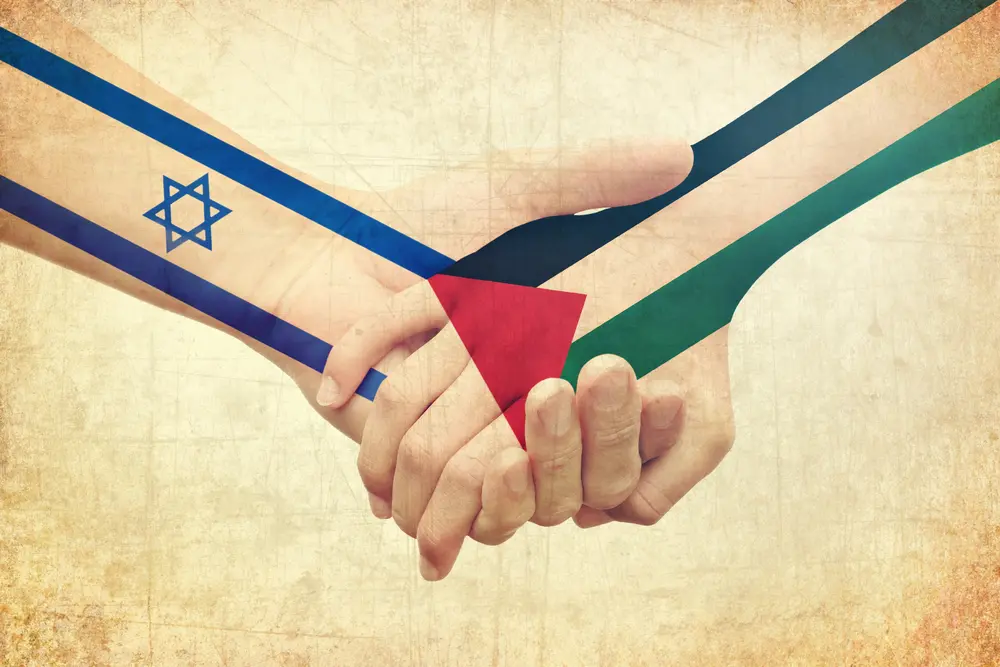
On Sunday, February 26th, Israel and Palestine agreed to build a “just and lasting peace.” The agreement comes amid a flurry of deadly incidents in the West Bank.
At their meeting in the Jordanian town of Aqaba, Israeli and Palestinian delegations pledged to bolster their peacemaking efforts. In their joint statement, as reported by international news agencies, they seek to prevent “further violence” in the West Bank, which historically is known to experience an uptick in terror attacks during the holy Muslim month of Ramadan, starting late March.
Next month, before Ramadan commences, all participants have agreed to meet again in the Egyptian town of Sharm el-Sheikh.
A potent reminder of the meeting’s urgency was brought to its participants as a fresh incident occurred during the proceedings: a Palestinian gunman killed two Israeli brothers in the occupied West Bank.
Raising the hackles of Jerusalem’s hardliners on the nation’s settlement policy, however, was a pledge made by the delegations “to stop discussion of any new [Israeli] settlement units [in the contested West Bank, occupied by Israel since 1967] for four months and to stop authorisation of any outposts for six months.”
Finance Minister Bezalel Smotrich therefore immediately dismissed the meeting as meaningless. He swore:
There will not be a freeze in the construction and development of settlements, not even for one day (this, on my authority). The IDF, [Israel’s military] will continue to counter terrorism in all areas of Judea and Samaria without any limitation (we will confirm this with the cabinet). It is very simple.
Adding to the confusion was Prime Minister Benjamin Netanyahu, who corrected the record by saying that, contrary to what the joint statement says, “construction and regulation in Judea and Samaria will continue according to the original planning and construction schedule, without any changes. There is and will not be any freeze.”
בניגוד לציוצים, הבנייה וההסדרה ביהודה ושומרון יימשכו בהתאם ללו״ז התכנון והבנייה המקורי, ללא שום שינוי. אין ולא תהיה שום הקפאה.
— Benjamin Netanyahu – בנימין נתניהו (@netanyahu) February 26, 2023
In addition to Israeli and Palestinian ones, delegations from Jordan, Egypt, and the U.S. were present. Jordan, along with its allies Egypt and the U.S., said the meeting’s outcome signaled “major progress towards re-establishing and deepening relations between the two sides.”
Palestinian militant group Hamas, which has governed the Gaza Strip since 2007, however, called the meeting “worthless,” condemning the West Bank-based Palestinian Authority for its involvement. Hamas official Sami Abu Zuhri told Reuters that the meeting would “not change anything,” as it would not prevent “our people from defending themselves and confronting the crimes conducted by the government of the occupation.”
In a statement, U.S. National Security Advisor Jake Sullivan welcomed the meeting as “a starting point.” He however stressed that there was “much work to do over the coming weeks and months to build a stable and prosperous future for Israelis and Palestinians alike, and that “implementation will be critical.”
High-level meetings between Palestine and Israel had become a rarity. This last one came on the heels of a flareup of violence in the occupied West Bank, triggering fears of escalation.
In 2022 alone, in what was the highest number of deaths in years, more than 150 Palestinians and over 20 Israelis had been killed in the West Bank and Israel, so the UN Middle East envoy Tor Wennesland informed the Security Council in December.
